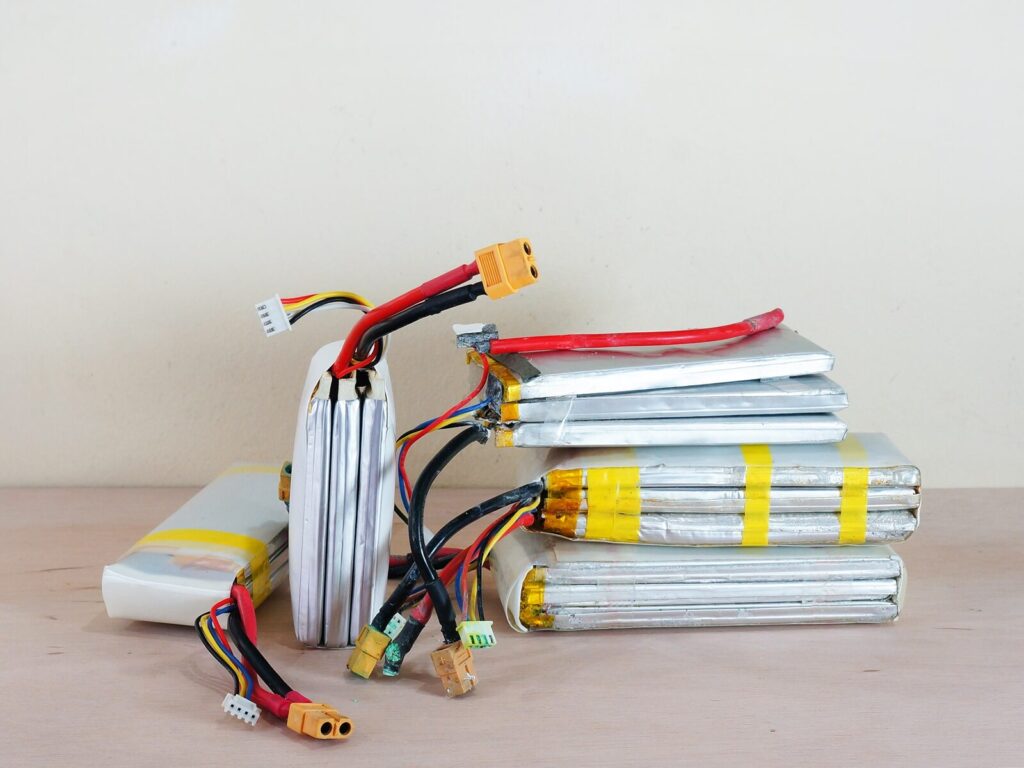The Applied Technical Services Family of Companies performs several types of battery testing and certification, including IEC 62133 Lithium Battery Safety Testing, in compliance with industry standards.
Battery Safety Testing and Certification
Lithium-ion batteries power a wide range of electronic devices, from smartphones to electric vehicles. As the use of lithium-ion batteries becomes more prevalent, ensuring their safety and reliability is of utmost importance.
International Electrotechnical Commission (IEC) 62133 is a critical standard that sets forth guidelines for the safety testing and certification of lithium-ion batteries, providing manufacturers, regulators, and consumers with the confidence that these batteries meet the highest safety standards.
IEC 62133 addresses the safety requirements for portable sealed secondary cells and covers battery design, construction, performance, and safety features. IEC 62133 lithium battery safety testing and certification helps to prevent hazards such as overcharging, short-circuiting, and thermal runaway, ensuring that lithium-ion batteries are safe to use and free from potential risks.
IEC 62133 Testing Methods
Thermal Performance Testing
Lithium-ion batteries are sensitive to temperature fluctuations, and improper thermal management can lead to dangerous situations like overheating and thermal runaway. To ensure the safety of the batteries, ATS conducts thermal testing under various conditions to assess how the batteries respond to different temperature extremes.
Mechanical Testing
Our battery safety testing experts perform mechanical testing to evaluate the battery’s resistance to physical stress, impacts, and vibrations. Mechanical testing is crucial due to the conditions lithium-ion batteries may be exposed to during transportation and everyday use. Ensuring their mechanical durability helps prevent damage and potential safety hazards associated with battery failure due to physical factors, such as:
- Drop
- Crush
- Mechanical Shock
- Vibration
Electrical Testing
Electrical testing involves assessing the battery’s capacity, efficiency, and performance to ensure it meets the specified requirements for the intended application. The battery must deliver a consistent power output and maintain its capacity over its intended lifespan, ensuring reliable performance in the devices it powers. The electrical tests in the IEC standard include:
- Full Charge
- Over Charge
- Short Circuit
IEC 62133 Battery Safety Certification
IEC 62133 certification is obtained through accredited battery and electrical testing laboratories, such as Applied Technical Services, that specialize in lithium-ion battery testing. Our certified experts conduct rigorous testing and evaluation based on IEC 62133’s requirements. If the battery passes all the necessary tests and meets the safety criteria, it receives IEC 62133 certification, signifying that it is safe for use in electronic devices and complies with international safety standards.
For electronic device manufacturers, using IEC 62133-certified batteries provides assurance that they are integrating safe and reliable components into their products. This ensures that consumers have a positive experience with their devices and reduces the risk of incidents related to battery malfunction, potentially protecting manufacturers from liability.
Applied Technical Services
With over five decades of experience as one of the nation’s leading industrial testing and analysis providers, ATS has the tools to ensure unparalleled service quality while keeping pricing competitive. Our battery and electrical testing experts strive to achieve the highest level of customer satisfaction, maintaining frequent communication and providing detailed, precise reporting.
Contact Us
Get in contact with us today by calling 1 (888) 287-5227 or submit a request form on this page for additional information or a free quote on IEC 62133 lithium battery safety testing and certification services.



